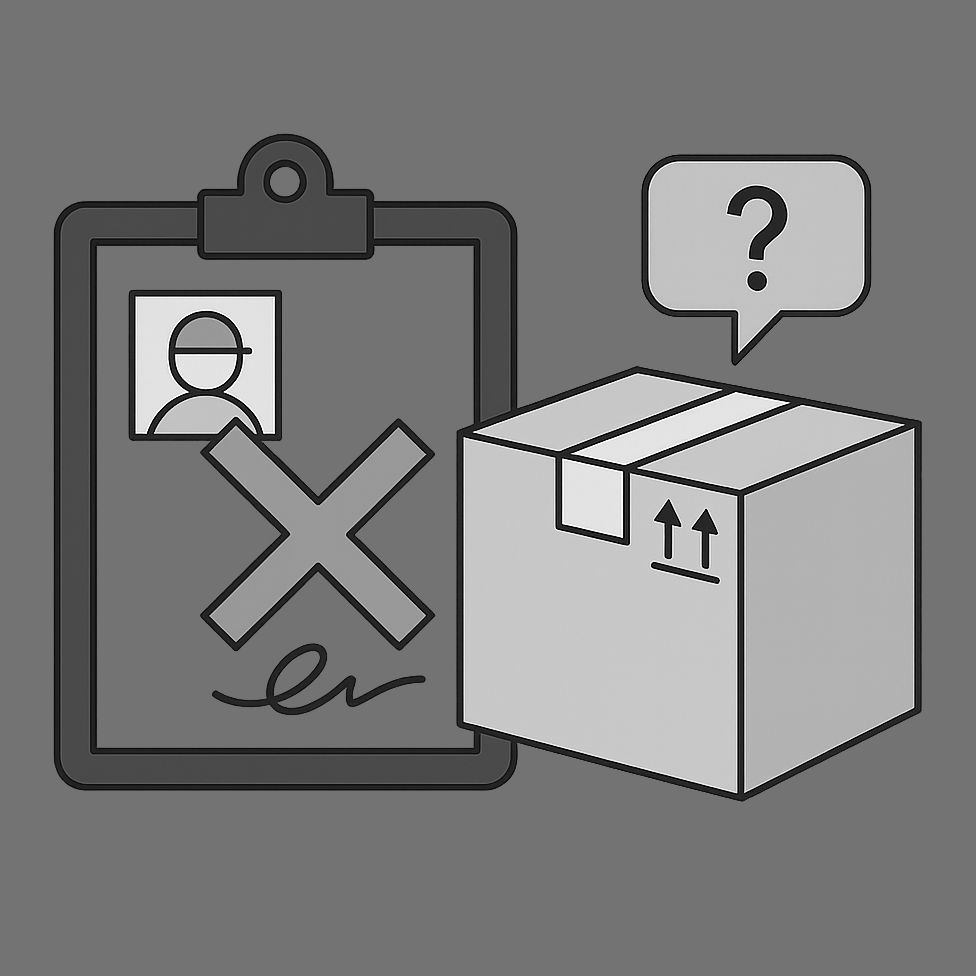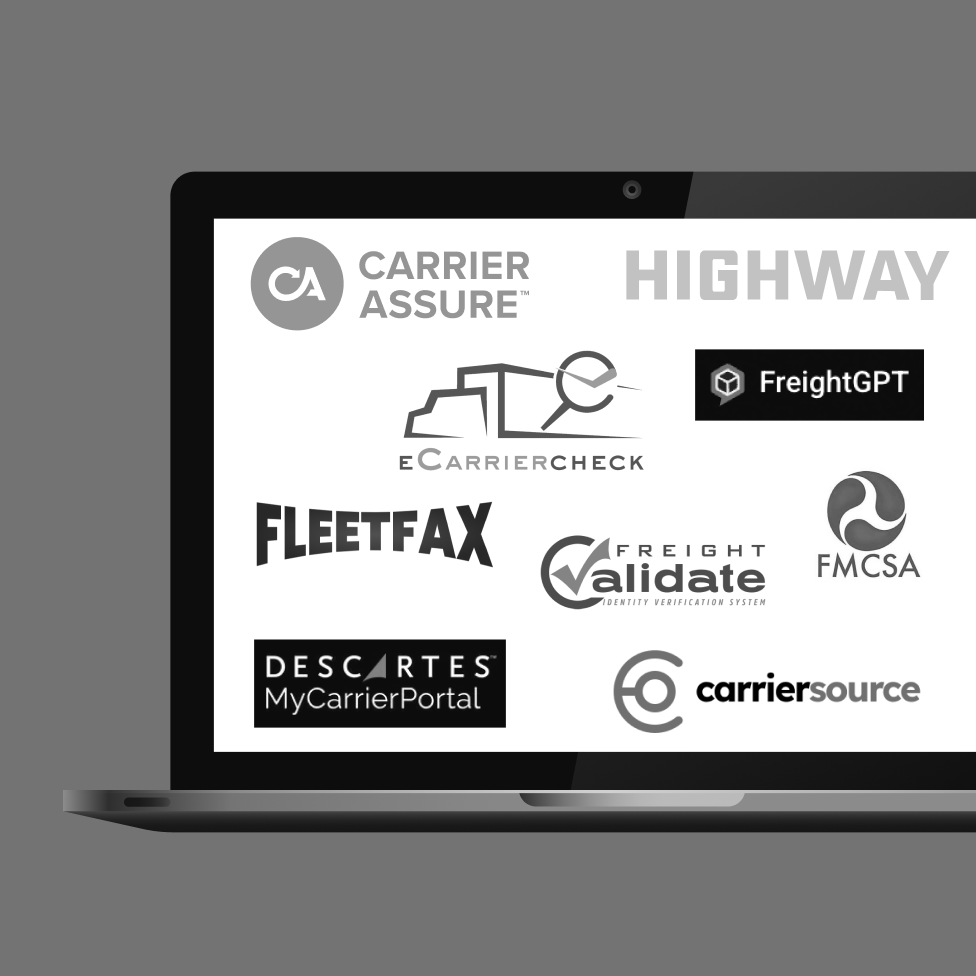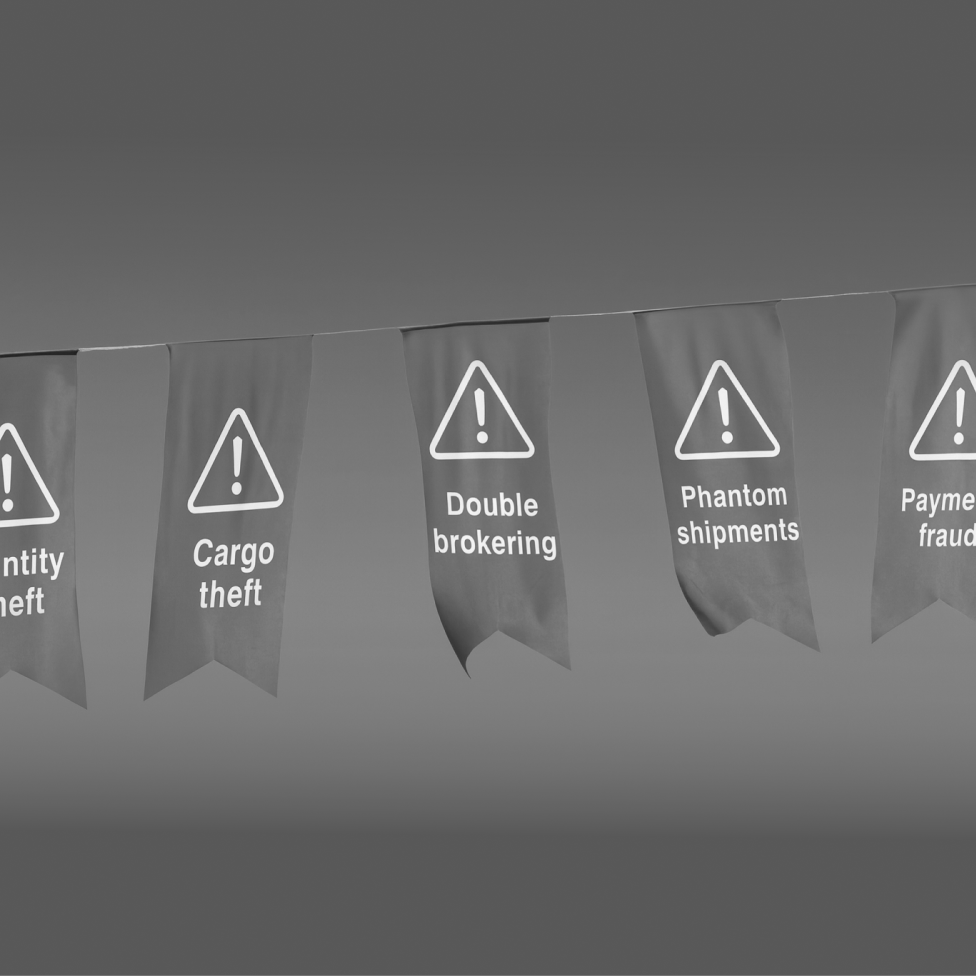Credit is more than just a number in the freight industry. It’s a critical signal that carriers and lenders use to identify the best brokers from the shady ones - which can lead to some challenges for newly established brokerages who haven’t had a chance to build credit.
This can be especially true for those who are establishing a brokerage after leaving an agency or adding a brokerage arm to an existing fleet. You’ve been in business for a while, but without an established brokerage you may not have a freight broker credit score attached to your business.
This can make the job of finding and establishing a relationship with new carriers incredibly challenging, not to mention securing financing and building your reputation as a broker.
Credit can impact almost every aspect of a brokerage. Brokers with good credit scores have an easier time getting financing, finding carriers who want to transport their loads, and getting the best rates from lenders.
This can feel like a chicken-and-egg problem when trying to establish something new. You need credit to establish trust with carriers and lenders, but need loans and payment history to establish credit. What is a newly formed brokerage to do?
In this article, we’ll cover the importance of freight broker credit, how to establish a solid credit score and reputation (even if your brokerage arm is brand-new), what factors impact your credit score, and more.

Want better financing options? Learn how building credit can help you secure more funding and grow your business faster.
What is Freight Broker Credit?
Freight broker credit scores are similar in concept to your personal credit score. It’s an indicator of your business’s financial stability and ability to repay debts. A broker with a higher rating is considered more reputable and creditworthy than a broker with a lower rating.
There are a few distinct differences between personal credit scores and freight broker credit reports. First, the scale is different. Personal credit scores range from 300 to 850, whereas freight broker credit ratings use a 0-100 scale. Freight broker credit scores are also more focused on the financial health of the business, instead of your personal payment history and behavior.
What factors impact your score?
A freight broker’s credit rating is impacted the most by the timeliness of payments. Late or missed payments have a significant impact on your credit, and can quickly drive down your score.
Broker-specific credit bureaus such as Ansonia also track your days-to-pay, which is why many brokers should be monitoring this metric through a financial dashboard, and improving it as much as possible.
This is why it’s critical to maintain your cash flow and avoid overextending your business. Paying on time, every time, and reducing your days-to-pay is critically important for maintaining solid credit as a broker.
Other factors such as credit history, amount of outstanding debt, existing trade relationships and references, the number of credit inquiries, and business history can also all impact your credit.
What is a broker’s credit score used for?
Establishing credit is an essential part of growing most brokerages. Credit is used to secure financing for expansion, to establish lines of credit with carriers and factoring companies, and to secure a surety bond to obtain or renew their license.
Not only is credit useful in starting and growing your brokerage, but a great credit score will also help you secure the best rates from lenders, factoring companies, and any other financial services your brokerage needs.
Most importantly however it’s an indicator of the trustworthiness and reliability of your brokerage. Brokers with poor credit scores will have a much harder time building relationships with carriers, and are likely to lose business to brokers with good credit. Carriers are performing freight broker credit checks more and more frequently, and without a good score they’re unlikely to do business with you.
Why do you need good credit as a freight broker?
Brokers might be inclined to ignore their credit score as a non-essential factor in the business, or think their current score is “good enough”. But if you plan on growing your brokerage, that would be a mistake.
There are several benefits to establishing good credit as a broker:
- Secure loads easier and faster
Establishing a high credit score as a broker makes securing loads significantly easier. Carriers need some kind of assurance that they’re going to be paid, and are becoming increasingly cautious about working with brokers who don’t have established credit. - Improved lending options
Some banks and lenders will refuse to work with brokers who have poor credit, and those who do will offer significantly higher rates. Higher rates can severely impact your brokerage’s cash flow, limiting your growth and expansion opportunities. - Improved negotiating power
In addition to being offered better rates from lenders, a proven track record and established credit gives brokers improved negotiating power for rates and terms with factoring companies, shippers, and carriers. If your brokerage is seen as lower risk than your competitor, you have more leverage in many negotiations. - Win new business
Establishing a reputation as a reliable broker who pays on time will attract the best carriers in the industry to your brokerage. This in turn can be used as a differentiator to secure new customers and loads.
For these reasons and more, building and maintaining good credit as a broker should be seen as a mission-critical task that should receive dedicated time and attention from brokers.
What is considered a good credit score for brokers?
Just like your personal credit score, a higher freight broker credit rating is better, and a lower one is worse. For brokers, your credit score will fall into one of three ranges that are generally considered “High risk”, “medium risk”, and “low risk”.
Credit Score Ranges:
Ansonia, one of the premier credit reporting agencies for freight brokers, puts brokers into three risk categories. Brokers with the best scores are considered the lowest risk and most financially stable.
- Low risk: A broker credit score of 87-100.
These brokers are generally considered the most reputable and least at risk of defaulting on or missing a payment. Brokers in this category often have their pick of carriers willing to work with them, and can often demand higher fees for their services as a result. - Medium risk: A broker credit score of 70-86.
If your broker credit falls between 70-86 out of 100, you’re considered a medium risk brokerage. There are several reasons why a broker might end up in this range, and it doesn’t necessarily mean they have poor business practices. However, these brokerages have less leverage with financial institutions and carriers, and may experience slimmer margins due to worse rates and pricing options as a result. - High risk: A broker credit score of 0-69.
High-risk brokers are generally regarded as the least reputable, and may have trouble finding lending opportunities and carriers as a result. Some brokers fall into this category due to repeatedly paying late or failing to pay at all, but that isn’t always the case. New brokers (or brokerage arms) often have very little credit history, and may be categorized as “high risk” as a result. These brokers should focus on building their credit using the steps outlined below to rapidly increase their credit rating and get out of the high-risk category.
.png)
Industry Standards
While brokers with any level of credit risk will be able to continue doing business, brokers with worse scores are far more likely to encounter problems in the long term.
FreightWaves recommends that carriers perform credit checks on freight brokers to verify their creditworthiness before working with them, making it increasingly difficult for brokers with a poor reputation and credit to win new business.
Brokers who want to expand their business and win contracts with top-tier carriers should strive to improve their credit rating into the “low-risk” range above 87.
If your score is lower than this and you still wish to win these contracts, work to improve your score while also providing other opportunities to remove risks for carriers, such as:
- Offering a discounted rate to incentivize working with you.
- Providing carriers the opportunity to speak with past carriers who were happy with your brokerage.
- Offer other references that can speak to your reputation and integrity as a brokerage.
- Providing exceptional customer service.
- Be proactive in communicating with carriers, shippers, and your team to avoid issues and delays in payment.
How do you find your credit score as a freight broker?
Now that you know the importance of building and maintaining a great credit score, let’s dive into how to check your freight broker credit report and monitor it.
Methods and Tools:
The methods and tools for monitoring your credit score as a freight broker fall into two categories: directly receiving a broker credit report from a credit bureau, and using a credit monitoring service. In general, we recommend using a combination of the two - occasionally checking your credit reports from one (or more) of the big credit bureaus, and consistently monitoring your credit through a monitoring service.
Credit Bureaus:
The first method of monitoring your credit as a broker is to request a copy of your brokerage’s credit report through a credit reporting agency or credit bureau. There are several options available for this, some specific to freight brokers and others as a general business.
Several of the credit reporting agencies that provide credit reports for consumers also provide credit reports and scores for businesses. Each uses different criteria to evaluate your business’s creditworthiness, so it’s worth checking them regularly to ensure there are no red flags in any of your broker credit reports.
Ansonia is the primary credit bureau for freight brokers, and is where we’d recommend requesting your report first. They use the 0-100 scale we’ve discussed throughout this article, where a score of 87+ indicates the lowest risk brokers.
Dun & Bradstreet is one of the largest credit bureaus in the world, and is the provider of DUNS numbers for businesses - a unique identifier that is used to assess your business’s creditworthiness. They primarily report on three numbers: A Paydex score (1-100), a failure score (1,001-1,875), and a delinquency score (1-5). Higher paydex and failure risk scores indicate a lower risk, and a lower delinquency score indicates a lower risk of late payments. You can view a sample report here.
Experian offers a credit report that consists of two core numbers: Your business credit score (1-100) and a financial stability risk rating (1-5). The higher your business’s credit score and the lower your financial stability risk rating the better. You can view a sample Experian business credit report here.
Equifax also provides a credit report that assesses three numbers: Your payment index (0-100), your credit risk score (101-992), and a business failure score (1,000-1,880). These numbers reflect your business’s payment history, risk of delinquent payments, and likelihood of closing within a 12-month period respectively. You can view a sample Equifax report here.
Lastly, for businesses seeking SBA loans from the federal government, there is a FICO business credit score called the FICO SBSS score, which has a range of 0-300. This is only relevant for businesses seeking SBA funding of less than $500,000, and the minimum score to receive the loan is 155.
TransUnion, the other major credit rating agency for consumers, does not offer a business credit reporting product.
Credit Monitoring Services:
Doing a full credit report for your brokerage isn’t necessary to keep an eye on your credit. There are also several credit monitoring services available for brokers and small businesses. Here are the best options:
In addition to being a credit reporting bureau, Dun & Bradstreet also offers a credit monitoring service for businesses, helping brokers keep an eye on their scores and ratings. This service has a free option as well as premium monitoring services. You can read more about their credit monitoring service here.
Nav also provides credit monitoring services in addition to other financial products for businesses. This service monitors the credit scores and reports provided by Experian and Equifax, as well as personal credit scores and reporting. You can read more about their services here.
How to Improve Freight Broker Credit
Once you’ve pulled your report and learned your score, you may find that it’s not quite as good as you hoped. Maybe your brokerage arm is new, has a limited credit history, or is still being established. Whatever the reason, if your score isn’t where you want it to be - don’t fret! There are several steps you can take to improve your broker credit score, sometimes rapidly.
Here are our top tips on how to build credit as a freight broker:
- Make payments on time, every time
Making payments on time and consistently is the number one factor in determining your credit score. Maintaining an average 27-28 days-to-pay is a critical aspect of building credit as a broker. - Manage cash flow and don’t overcommit
Ensuring your business has sufficient cash flow to properly pay carriers and vendors quickly will help build and maintain credit as a freight broker. This also means expanding steadily and not overcommitting to too many loads, which can cause slow-downs in payments. - Reduce debt and avoid frequent credit inquiries
Like personal credit, business credit reports monitor the amount of outstanding debts your business has and compare them to your income and the amount of credit you have available. Lowering your debt-to-income ratio and credit utilization ratio will improve your credit score. - Run audits and verify paperwork
Continue to monitor and audit your systems and credit reports to ensure there are no errors. One of the most common reasons for delayed payments is caused by paperwork errors. By running audits and verifying documents like bills of lading, load confirmations, and lumper receipts have the correct and accurate information, you’ll reduce human error and improve payment speeds.
Factoring company's role in building credit
Did you know that freight factoring can play a major role in improving your credit as a broker? Since one of the most important factors of your score is on-time and rapid payments, your factoring company can help brokerages improve credit - if indirectly.
One of the easiest ways to leverage factoring to improve broker credit is by using a set days-to-pay setting for your carriers. By using a days-to-pay setting, you can consistently pay your carriers the same number of days after invoicing. No risk of late, delayed or lost payments. Plus, you’ll reduce the number of calls you receive from carrier factoring companies. Plus, because carrier payments are done through electronic payments, you eliminate the possibility of lost or delayed checks in the mail.
Using a factoring company also allows brokers to better manage their cash flow ensuring carriers are paid consistently across the board. This consistent track record of on-time payments is a major factor in your credit score. This helps build up a broker's credit history, proving consistency and improving your credit score over the long term. Additionally, you’ll reduce the number of calls you receive from carrier factoring companies.
Conclusion
Whether you’re expanding your brokerage to a new area, adding a brokerage arm to an existing fleet, or hanging out your own shingle for the first time - building credit is essential to any brokerage’s success.
Credit provides new opportunities, improves the quality of your carriers, and offers brokers a competitive edge when it comes to pricing and negotiation. With these steps, you’ll be well on your way to building your credit and establishing your brokerage as a premier option in the industry.
Denim’s automated solutions streamline your back-office operations. Explore our solutions to see how Denim can help your business scale efficiently.
There's a better way


.png)




